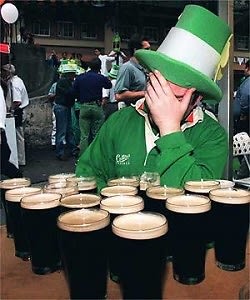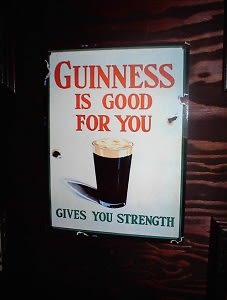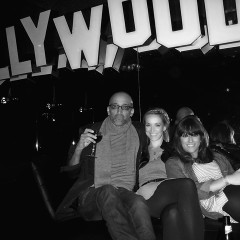 Malcolm Gladwell, the New Yorker's resident pop psychologist, examines the cultural context of binge drinking in the mag's current issue. Plenty of people lead rich, harmonious lives while buzzed. But in the biggest blow to their pride since the Mrs. Robinson scandal, the Irish can't.
Malcolm Gladwell, the New Yorker's resident pop psychologist, examines the cultural context of binge drinking in the mag's current issue. Plenty of people lead rich, harmonious lives while buzzed. But in the biggest blow to their pride since the Mrs. Robinson scandal, the Irish can't.
Gladwell's article discusses a study of various ethnic groups in 1950s New Haven. It found that local Italians who began their day with a glass of wine at breakfast and ended it with a nice grappa to wash down that cannoli were mostly unfazed by their alcohol consumption. In fact, one man whose daily routine had him polishing off four glasses of vino by noon was gainfully employed and had only been drunk twice in his life.
One local clinic that had admitted 1,200 alcoholics by the end of the '50s had seen "plenty of Irish" patients, but just 40 Italians:
"Here were two groups who practiced the same religion, who were subject to the same laws and constraints and who...should have the same assortment within their community of those genetically predisposed to alcoholism. Yet the heavy-drinking Italians had nothing like the problems afflicting their Irish counterparts."
 OK. First of all, let's agree that anyone unfortunate enough to live in New Haven can be forgiven the need to get blitzed every day. Secondly, we all know that drinking on an empty stomach will exacerbate the effects of booze. And the availability of home-cooked lasagna in Italian households would no doubt hold residents over better than the watery cabbage on hand in Irish abodes.
OK. First of all, let's agree that anyone unfortunate enough to live in New Haven can be forgiven the need to get blitzed every day. Secondly, we all know that drinking on an empty stomach will exacerbate the effects of booze. And the availability of home-cooked lasagna in Italian households would no doubt hold residents over better than the watery cabbage on hand in Irish abodes.
But that's not all. If Uncle Tommy is worried about his neighbor Salvatore drinking him under the table, just wait until he meets the Camba tribe of Bolivia! Those mestizo folks would make Don Draper look like a lightweight.
You see, Dwight Heath, a Yale grad student in anthropology, spent some time with the Camba. Their beverage of choice, he later found out, was 180-proof rum that in America was considered "laboratory alcohol--the concentration that scientists use to fix tissue." And despite "weekly benders" with said 180-proof lab booze, the result was "no pathology--none. No arguments, no disputes, no sexual aggression, no verbal aggression."
Moving on, Gladwell looks at the effects booze has on a drinker's personality and social habits. And there, he gets the closest the New Yorker has or will ever come to an analysis of beer goggles:
"If you are good-looking and the world agrees that you are good-looking, drinking doesn't make you think you're even better-looking."
However, and this is to paraphrase just a bit, if you are a troll laboring under delusions of hotness, alcohol makes you lie to yourself even more.
 The bottom line is that people take cultural cues on how to act when drunk. Drunkenness itself does not, to use Gladwell's example, cause frat boys to behave like loud boors at Joshua Tree every Friday night. It's the loud music and cheesy '80s videos that signal to them that such behavior is not only acceptable, but expected.
The bottom line is that people take cultural cues on how to act when drunk. Drunkenness itself does not, to use Gladwell's example, cause frat boys to behave like loud boors at Joshua Tree every Friday night. It's the loud music and cheesy '80s videos that signal to them that such behavior is not only acceptable, but expected.
The Camba drinking ritual was a bit much, sure. But Gladwell asserts that unlike the relatively savage tribe of the American frat boy, the Camba's "understood the importance of rules and structure." Finally, he asks "why can't we all drink like the Italians of New Haven?"
To which I say: Pass the Chianti. Now.


.jpg)
.jpg)



.jpg)
.jpg)
.jpg)



